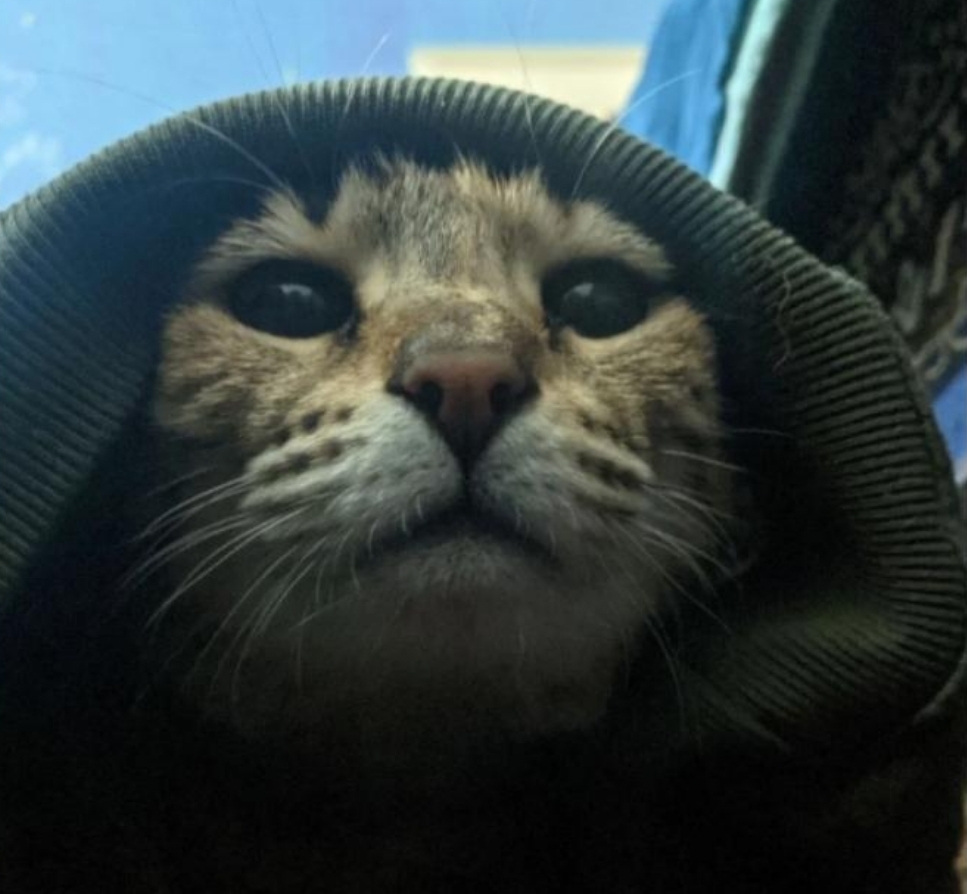Programmers can answer all existential questions with ease
No more than identical twins are the same person.
Scientifically speaking, identical twins are clones, so yes, I agree
Isn’t it illegal to clone humans or something?
To my knowledge, yes. The act of cloning is illegal, which means something like creating a clone artificially. The existence of clones isn’t
Yeah. It tends to be difficult to make natural biological processes illegal.
Except with cloning the other twin would be a different age as with current tech the clone is back to being a baby. You’d need rapid growth tech and mind transfer tech to at least make the clone have the same age, memories and personality, although that would most likely introduce other differences.
There is at least one case of parents, told at a very early stage that they’re expecting twins, deciding to remove and freeze one of the embryos for later reimplantation, so even with actual identical twins, they can be different ages.
But yes, transferring minds is not something we can do. I’m not sure it’s something we’ll ever be able to do.
Should it actually become possible, I assume that certain parties would even advocate for the unique life/lives of the clone(s). The argument would be that the clones’ chance at life shouldn’t be overwritten by other being’s attempts at extension of life.
“Ethical minefield” doesn’t even begin to cover it!
So, less than an identical twin is the same person. The criterion above still holds.
Nothing more than bootstrapping the data for some integration testing
Cloning atoms isn’t thread safe not atomic, so at the end of the cloning process the contents of the clone will differ from the original. We need to invent a synchronisation primitive that works on the molecular level before we can accomplish exact clones.
Haha, I want to see a race condition going on with real matter.
This kills the universe.
This is the universe.
Maybe we can’t do race, but what about racemic?
If you fork a process, then it’s the two separate processes but sharing the same memory with copy-on-write mapping.
Is that actually more efficient if I need my child process to do something different with different data?
It’s more efficient for memory until you start working with different data. Threads also rely on the same syscall on Linux, clone(2), but they don’t share the entire context by default, so they’re more lightweight. It is recommended to use pthreads(3) API instead of fork(2).
Also, if you care about Windows, threads are far lighter than processes on that platform. Starting a new process is relatively slow compared to other platforms.
Ah thx for the info
deleted by creator
If you just clone a reference to them, then you are just pointing another finger at them.
Is this really an analogy that resonates with programmers today?
If you clone a reference to someone you have a completey separate body but any actions taken affect the original as well
I believe it is just a wormhole pointing to the original so even if it may look like another body it’s just the original being manipulated through the warped spacetime continuum
Why would the clone be connected…?
Because it’s only a reference to the original.
They are, on the exact moment they are cloned. On the next attosecond they are not.
Edit: Well, if they are cloned on the cellular level, otherwise it’s just NO.
What if they’re placed into two completely identical environments?
Quantum multiverse theory says that happens all the time.
deleted by creator
Maybe something else would be different on the other side of the universe
Is there a universe where that doesn’t happen all the time?
Well, an infinite multiverse doesn’t mean there’s a universe for every concept, just that there’s an infinite number of multiverses, and a quantum multiverse only guarantees a universe for every possible series of events (except those that necessarily lead to that universe’s destruction.)
Except in the universes where that’s different, of course : )
What if it happened already?
Why cellular level?
Environment affects gene expression so cloning below the cellular level (genetic cloning) results in an individual that does not have the same developmental changes caused by environmental factors that the original had. With current technology genetic cloning has been done and cellular cloning is not possible.
You have no idea what cloning is, right? You’re too young to remember Dolly
bahhh
The real answer btw is no, cloned animals aren’t identical to their original, same base traits, but for example in cows spot position will be different
Also unless you can copy their memories, they just won’t be the same person.
And then they’d have two different life experiences and would immediately begin to differ.
And we also change every milisecond. How long this process takes? It may seem irrelevant but copy of you 5 seconds ago is not you now. It’s your restored back up.
Unless your pause execution of the original or there’s an ongoing synchronization during the cloning process
Sync would lag anyway, I think, if we are pedantic.
Pausing the execution of the original via execution solves the problem of who’s original here tho. One’s still functioning.
Well it depends on the method of sync… Doing it through updates would lag, but what if it was through something like quantum effects, or even by treating both bodies and brains like a contiguous organism until the cloning is complete? Like with a cell dividing, there’s no original
So it’s kind of like the moment of inception is the memory reference, and they won’t ever be the same?
They’re now two people who will love two different lives, they will naturally begin to diverge
Okay, now do the Trolley Problem.
easy:
breakdeleted by creator
throw IllegalStateException()
If you copy by reference there’s still only one person.
What is clone by reference?
Hive mind
We are all one.
Technically the Borg
You in the mirror.
https://www.mentalfloss.com/article/76908/trouble-star-trek-transporters
If the transporter takes all the atoms that make up a person, encodes them, beams them somewhere else, and then reassembles them, how can we know that the resulting “person” is the same person who went in?
Depends if you add the ethicator or not

Is it a copy or a hardlink?
Did you remember to override .Equals and .GetHashCode?
If you clone them, you’ll lose their functions.
Make a deep clone
Huh. Now my confusion about the chicken and the egg debate makes a lot more sense, it seems odd to me that such an easily answered question ended with so much confusion
I’m now realizing it’s only a debate with non programmers, I thought it was a mutual ADHD communication thing, now I’m realizing maybe it’s just because they learned about inheritance




















